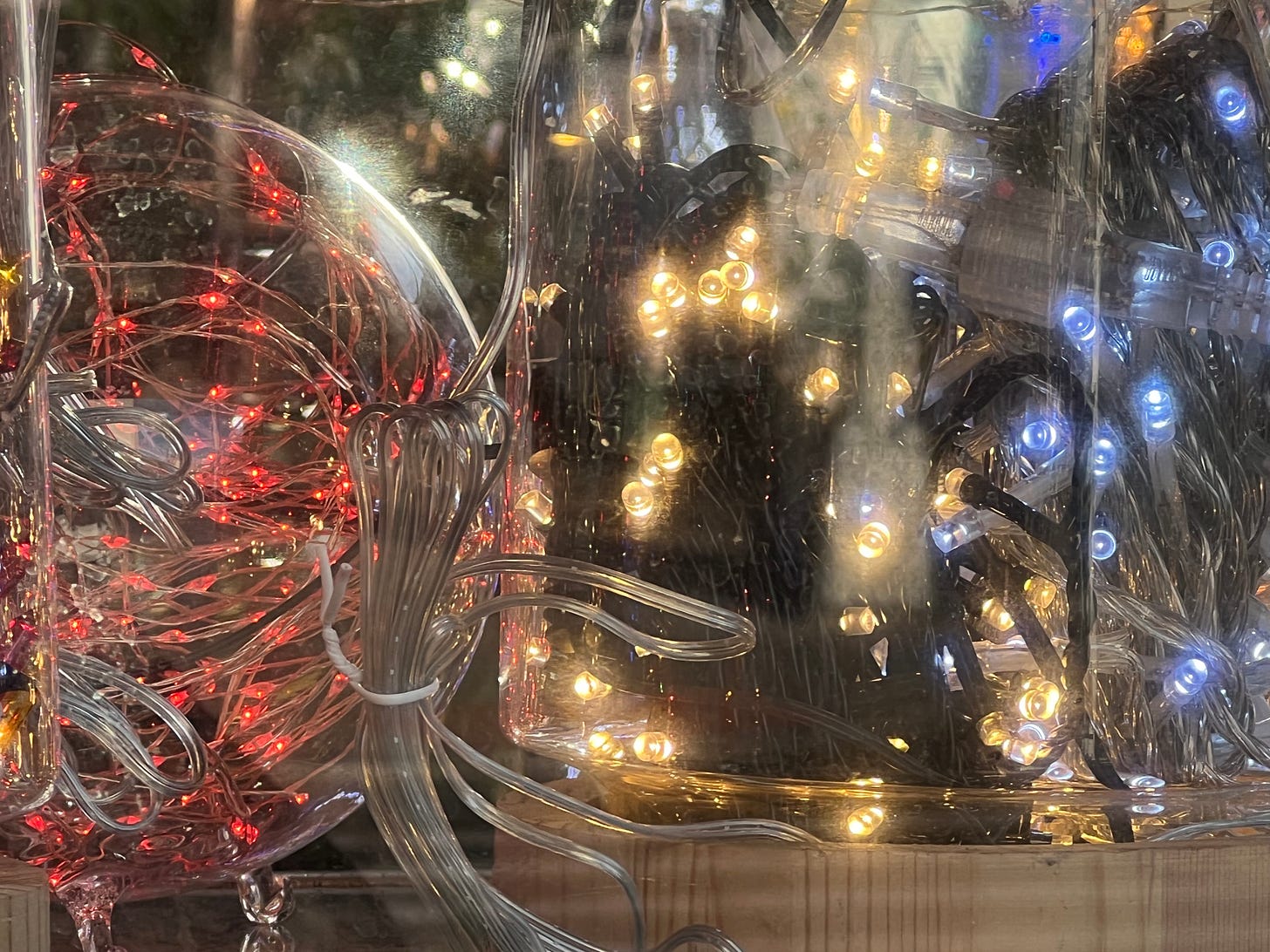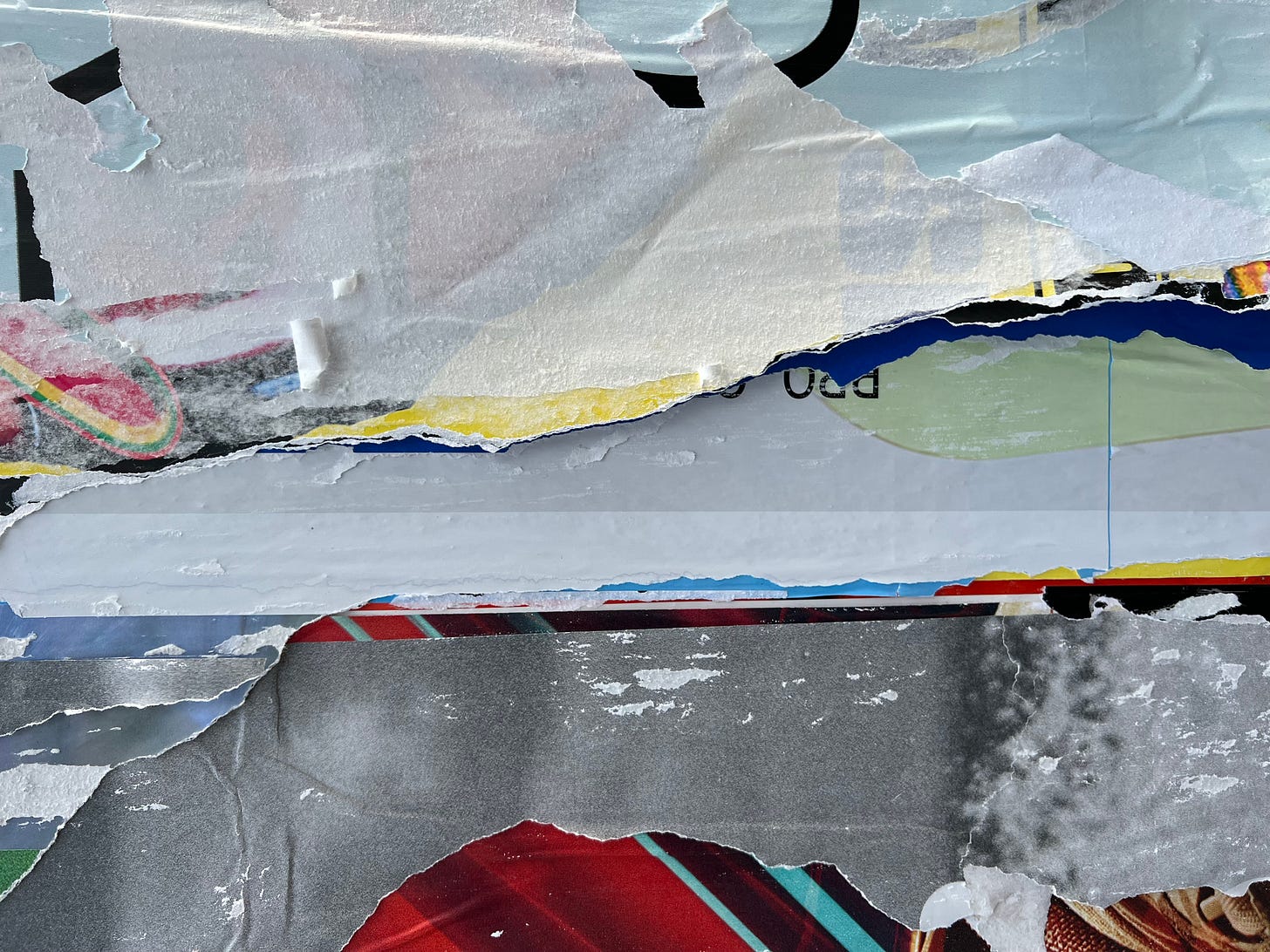Wednesday, January 5 2022
This newsletter has been a source of strength and happiness for the past three years and if we get twenty-one more paid subscribers, we’ll be good for a few months. (The subscription link is at the end of email because it would look fugly here.) I don’t feel the level of “you guys” that The Rock feels but I feel pretty “you guys.”
Because I love you, here is a photo of Siouxsie Sioux that Lynn Goldsmith took in 1980.
I was listening to a clutch of syllabus bands over the break while cleaning out my music library and preparing for a call with Apple support that I have yet to make. Two things popped up.
Siouxsie & The Banshees are so good partly because of how successfully each instrument chooses and holds a space. The biggest of these instruments is Siouxsie’s voice. I try not to give in to golden days rhetoric but each age does have behavioral tendencies. Having to play live and rehearse a lot meant that bands in the late Seventies heard themselves fairly often and had to adjust on the fly. The live and studio versions simply had to be the same unless somebody had Logan Roy money.
I also went through a chunk of the Go-Betweens catalog and realized that Robert Forster maybe took more from Tom Verlaine’s singing than anybody else. It is reductive to say that The Go-Betweens catalog sounds like one Television song played over and over, but for an hour, it felt like Forster was the only one who had really internalized Verlaine’s way of avoiding cliché and letting a vocal break apart.
Dan and Wonj are back with Do/While 44, a great mix I am going to link again by putting it here, mere words away from the first link. Along with Matthew Schnipper—whose great playlists I’ve mulched for this Deepest Voices compendium—Dan and Wonj are really good at a kind of variegated and careful selecting of chill, an approach with distant roots in ambient spelunking. Wonj recently tweeted this old 2019 mix, Motion Cast 35, which is excellent if you’re hurting. And this week, I am.
Noz just posted a new Tired Quarterly mix, which is a woozy and chaotic blend of songs that are not rap. I love that Andrew Nosnitsky is not afraid to play abrasive music. He mostly doesn’t, though. Here is an archive of all the Tired mixes.
This François K tribute to Robbie Shakespeare is four hours and predictably great. If you don’t know François, this session will give you a pretty good sense of how he tells stories and weaves songs together. One of the biggest revelations was hearing Mick Jagger’s “Lucky In Love,” a 1985 song that Shakespeare played on and that François remixed for the 12-inch that came out then. It is so so awful, and Mick Jagger is so unbearable, and I rarely hear François play anything I dislike. Robbie still sounds good on the track and I am guessing François is the only person who worked with Robbie and also did a big tribute mix.
What François has been most excited about recently is DJing with files produced by stem extraction software. Short version: there are programs that can isolate (with relative degrees of success) the individual tracks of a multi-track recording (which is all recordings, pretty much). This is a playlist of all the sessions François has played using these stems. It’s a glorious version of dub, especially in his hands.
Someone who calls himself Pretty Sneaky has made a bunch of rhythmic and excellent music. More than one track feels like a warmup made with a few sounds and patterns, a thing I am happy to listen to for hours. At least six of you will feel the same! He recently did a fantastic one-hour in-store set at Hard Wax. In that YouTube video, you will see all the record names appear clearly in not one but two places. Hottest Omicron club? YouTube! Also a big hooray to saying the name of the fucking record you are playing. Down with the cult of the fake genius DJ, player of someone else’s record!
Too many beats? Then go to this NTS mix made on November 19 2021: one hour of Hildegard von Bingen. No richer deposit of vocal harmony.
Critic Dave Hickey died on November 12th, and Chris Richards posted the below Twitter thread on November 20th. It is reproduced with his permission and a few small edits:
Dave Hickey is dead at 82. If I live as long, that means I have 40 years to keep (re)reading him and dreaming of being able to write like him. Here’s my roughly chronological experience with some of the coolest thoughts ever put into words on a page.
First encountered Hickey in Artforum, the December 1998 issue. I was 19 and pursuing my art degree. He was comparing a horny Murakami sculpture to Bernini. Regripped years later and realized this issue also introduced me to Emily Nussbaum, Wayne Koestenbaum + my other true hero, Ben Ratliff. Wild!
Air Guitar is a masterpiece. Life changing lesson for final-stage teen me: Pursuit of knowledge is the most fun way to live. When I meet NBA freaks I tell them to read “The Heresy of Zone Defense.” I gave a copy to Lana Del Rey when I interviewed her! Hope she read it. You must.
The Invisible Dragon is (still?) his most controversial work. I’ll never fully understand the art world circumstances when it landed, but his argument for our “long pagan romance with beautiful things” is still teaching me about the risks/gains of contrarian arguments with heart.
Pirates and Farmers is the book that most feels like Air Guitar 2. Re: taste: “We shouldn’t falsify our preferences just to get invited to dinner. It has consequences.” Re: criticism: “I wanted to pull up the weeds and water the roses.” Re: life: “Tedium swings the pendulum.”
Stardumb is a very short book of very short stories made with the artist John DeFazio that I read on a beach once and don’t remember but will read again today (not on a beach).
Available Light, an essay in this Ed Ruscha catalog, has this mystery lodestar: “Criticism is not about art, it is only ‘thinking in the neighborhood of art.’ We really don’t need to know the esthetic and moral parameters of a work to love it — only to know if they are there.”
Andy and The Dreams That Stuff Is Made Of is the best writing I’ve encountered about Warhol. “In Warhol’s democratic vision we are all alike in our unquenchable longing. Appetite and desire hold us together as a society, while taste and preference distinguish us and make us special. Neither exists without the other.”
A Lost World Found was an essay for a juried National Portrait Gallery competition. Outsider-amateurism is an egalitarian “distrust of style itself” in “an American world that is many times larger and more extensive than what we call ‘the professional art world.’” I heard bar bands differently after this.
In The Theater of Innocence opens with Hickey’s memories of dodging bullets in the UT tower shooting of 1966 (!!) and argues that Schapiro’s photos captured a pivotal decade when “everything turned outward and aspired to be visible... therefore everything is worth looking at.”
Prior Convictions is a collection of short stories written when he was in his twenties about what it felt like to be in that 1960s youth milieu (and maybe what it feels like for young people forever and always?). “They were living in a world violently at odds with their imagination of it.”
In War Is Beautiful, Hickey says WWII photography had “the blur, the swipe, the flying dirt” that would soon reappear in Abstract Expressionism, but today’s combat photos won’t inspire shit: “These pictures generate more distrust of American military adventures than I had before, and I had a lot.”
Dust Bunnies collates his greatest hits while holding court on social media: “Art objects in the flow of time are animated by any number of contradictory atmospheres. I like to strip away the sociology and address the object’s propensity for endless re-reading and misreadings.”
If Dust Bunnies is too pithy for you, try Wasted Words, a nearly-600 page compendium of Facebook threads Hickey posted between 2014 and 2015. This book will continue to transform from trash into treasure with each passing year
25 Women was maybe written in a defensive crouch? His ideas on beauty are still attacked for being gendered, and I’ve spent twenty years learning his we’re all freaks in the freak-scene! vibe doesn’t excuse me from interrogating my privilege. That said, there is incredible writing and thinking here.
Perfect Wave is subtitled “More Essays on Art and Democracy” so I guess that makes this book AG3. Surfing and Sontag, activities I want to learn, ideas I want understand. The prose is so godly and so human. I will miss him badly.
Not pictured: the articles Hickey wrote for Country Music magazine in the 1970s. I have a couple issues at work. Profiles of Waylon Jennings and that whole crew. Hickey may have coined the term “outlaw country”? I’m hoping his 70s music writing gets compiled someday soon.
Last one: He had this idea about “phonotext,” that writing must have a sound. I tell all music writers about it. When a music critic doesn’t have rhythm or melody in their prose why would we ever trust their listening?
READ DAVE HICKEY!







